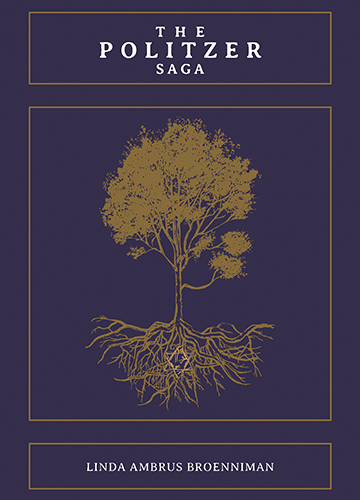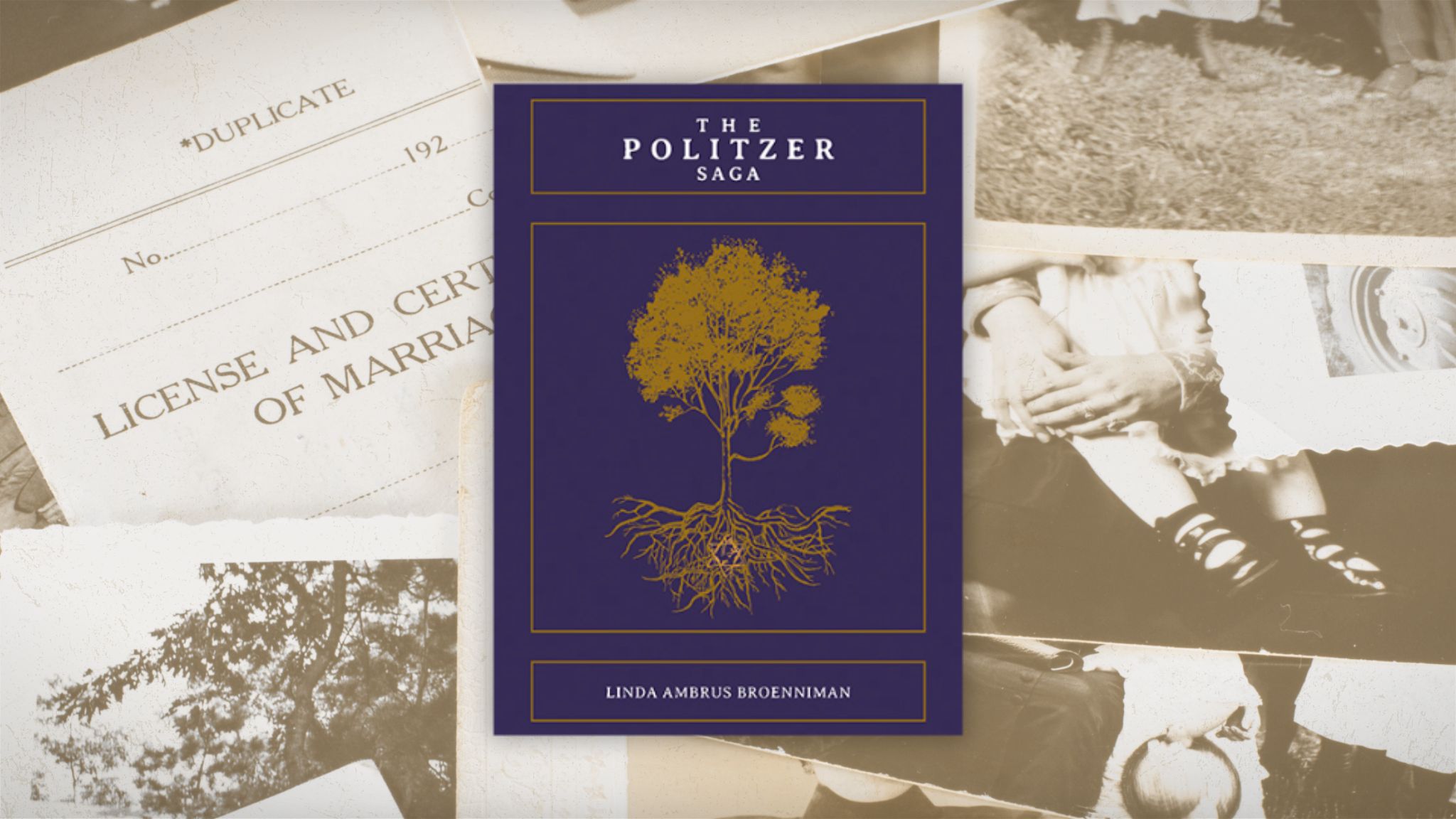The Politzer Saga by Linda Ambrus Broenniman
“When I was 27, I accidentally discovered that my father was Jewish. And that much of what I knew about him and his family was a lie.”
Most of us are familiar with a few generations of our relatives. We have met some of them. We know their stories; we have heard tales about their parents and their parents’ parents. But as generations diminish — physically or mentally — so too do our glimpses into history.
That is not the nature of Linda Broenniman’s journey.
The Politzer Saga (Bethesda Communications Group) by Linda Ambrus Broenniman is hardly the first account of someone obsessed with tracing the roots of her family. Yet that has no bearing on how fascinating and downright incredible her telling of this account happens to be.
While a young 27-year-old was not about to drop everything and scour records for the truth about her family, some 33 years later she could “no longer ignore the yearning to know the truth that lay buried.”
The findings are remarkable — riveting, heart-wrenching and inspiring at the same time. The author has pieced together a family tree dating back to 18th century Hungary, eight generations with 77 boxes. Each box is a story, a life, more than a square in a big diagram — real people who lived, who struggled, suffered, thought, made decisions to affect people in the adjacent squares. The book reads like a fictional family saga; the characters come to life in beautiful clarity, making readers easily forget that they were actually thoroughly researched and not the figments of someone’s vivid imagination.
The Story of a Family and a Community
Beyond the personal stories, the book is a wonderful history lesson of a place and a people. Family members were highly accomplished and respected — artists, doctors, business owners, freedom fighters, art collectors, musicians, successful in their personal endeavors but frequently broken by war, uprisings, political beliefs, religion, unthinkable, irrational treatment and tortures and a need to scratch and claw merely to live another day. Some of them served royalty. Some of them were destroyed by the Nazis.
According to Andras Gyekiczki, a Hungarian lawyer, sociologist and family researcher whose efforts were crucial to this undertaking, “I hardly know of any non-fiction sagas to better exemplify Hungarian Jewish fate of the past 300 years … All that fantastic talent, diligence and readiness to act for and during the birth of modern Hungary.”
Much of the material that started the research came from a box rescued from a fire at the home of Broenniman’s parents, which included hidden letters, photographs and documents.
At the start of each chapter, the author conveniently shows the appropriate section of the family tree that is being discussed, with one relative the focus of each chapter. Even with that guidance, things can get complicated. For example, her great-great-great-great grandfather Abraham Politzer and his wife had 14 children. Their stories break into numerous tributaries. Each chapter is supported by documents, certificates, photographs and many gravestones and plaques to commemorate lives and achievements.
Offering a Glimpse Into the Past
Today, The Politzer Saga, a permanent exhibition, resides on the third floor of the Rumbach Synagogue in Budapest, Hungary. The exhibit is composed of 10 lyrical and artistically rendered seven-minute films about eight generations of Politzers, based on the stories in the book.
Readers will easily become immersed in this marvelous and important work, as much for the stories themselves as for the digging that was necessary to uncover them. Readers will marvel in the challenges these people faced and the way Broenniman reveals the essence of their character, as if she was right there speaking with them. Broenniman is a gifted writer who knows how to tell a story – even if the plot and characters were there all along and no dramatic literary intervention was necessary to capture the audience.
In 2011, she declares, “’I am the great-great-great-great-granddaughter of Abraham Politzer’ … I knew that. But when I heard the words said out loud, my connection to them felt real for the first time. I could feel those roots in my bones. These were the people who came before me and my parents. This was my family.”
“The struggles, tragedies and triumphs of my father’s Jewish family, lost for so long, are now visible in the light of day. Hidden no more.”


 Linda Ambrus Broenniman grew up in Buffalo, New York. She is the middle child of seven born to Hungarian physicians who survived World War II and started their new life in the US in 1949. Linda graduated from Swarthmore College with a BA in psychology. Several years after getting her MBA from Carnegie Mellon, she left mainstream corporate America to follow her path as an entrepreneur, building companies in technology and biotech. She let her passion for uncovering hidden potential in unexpected places guide her. And she allowed this passion to fuel her search for her hidden family. Linda lives in Great Falls, Virginia with her husband of 28 years and their dog, Juno.
Linda Ambrus Broenniman grew up in Buffalo, New York. She is the middle child of seven born to Hungarian physicians who survived World War II and started their new life in the US in 1949. Linda graduated from Swarthmore College with a BA in psychology. Several years after getting her MBA from Carnegie Mellon, she left mainstream corporate America to follow her path as an entrepreneur, building companies in technology and biotech. She let her passion for uncovering hidden potential in unexpected places guide her. And she allowed this passion to fuel her search for her hidden family. Linda lives in Great Falls, Virginia with her husband of 28 years and their dog, Juno.


